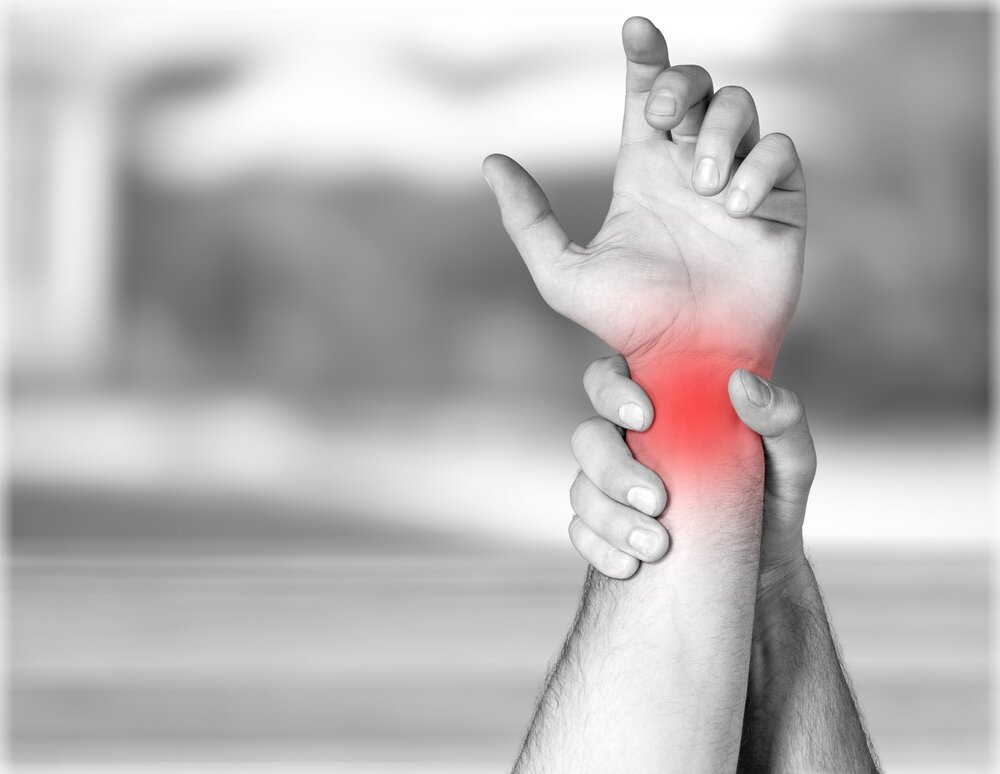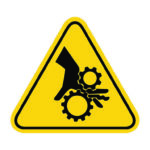
Thousands of people are injured in work-related accidents every year in South Carolina. Shockingly, the federal Bureau of Labor Statistics reports that more than 34,000 people state-wide got hurt on the job in a single year. Tragically, 108 South Carolina workers died from on-the-job injuries.
Even in cases where a workplace injury or illness doesn’t prove fatal, employees may still suffer significant pain, uncertainty, and expensive medical bills. In extreme cases, on-the-job injuries may prevent an injured employee from being able to work, perhaps for the rest of their lives.
There are many different ways someone can be injured in a workplace accident. Thankfully, most South Carolina workers are protected under the state’s workers’ compensation laws. Meaning, your employer’s workers’ compensation insurance should cover all of your necessary medical care from your injuries, plus part of your salary if you cannot work. However, just because these benefits are available to injured workers, doesn’t necessary mean that they are always easy to get. If you’re having trouble obtaining workers’ compensation benefits, contact the lawyers at the Joye Law Firm right away.
Our North Charleston workers’ compensation lawyers have helped thousands of workers who were unfairly denied their workers’ comp benefits initially, and we’re proud of our clients’ positive results To learn more about getting help for common work-related injuries in South Carolina or to get more information on filing a workers’ compensation claim, contact our North Charleston office for a free initial consultation.
Types of Work-related Injuries
When you’ve practiced workers’ compensation law in South Carolina for as long as firm has, you’ve likely seen just about every type of work injury imaginable. Here are just a few of the most common types of work-related injuries we see in North Charleston workers’ comp claims:
Broken Bones
 Fractures are extremely painful. Unfortunately, bone fractures and similar injuries are among the most common work-related injuries that occur in South Carolina. After an on-the-job bone fracture, it’s important to get prompt medical care. This can enssure the bone sets properly as it heals. If a bone is not set properly, it may not heal correctly, which can lead to big problems in the future like your ability to move or other bodily functions.
Fractures are extremely painful. Unfortunately, bone fractures and similar injuries are among the most common work-related injuries that occur in South Carolina. After an on-the-job bone fracture, it’s important to get prompt medical care. This can enssure the bone sets properly as it heals. If a bone is not set properly, it may not heal correctly, which can lead to big problems in the future like your ability to move or other bodily functions.
While there is no one, singular cause of broken bone injuries among South Carolina’s workforce, some professionals, including those involved in transportation industry, have a disproportionate number of these injuries. This is likely due to auto accidents which frequently result in broken bones, especially in the legs, feet, hands, wrists, and arms. A worker may also break a bone if a heavy object falls on them, or if they become entangled in industrial machinery. Slip-and-fall accidents are also common causes of broken bones in the workplace.
Soft-Tissue Injuries
Soft-tissue injuries are notoriously painful, nagging injuries that often require intense physical therapy to treat. In some cases, corrective surgery may be necessary as well.
Your body’s soft tissues, like your muscles, ligaments, and tendons, are the things that connect your bones to one another and help facilitate movement. . While these tissues do not fracture in the way a bone can, they can rip, tear, and be injured in other ways.
For example, one of the most common types of soft-tissue injuries in the workplace involve an ACL sprain or tear. This is when the ligament connecting your thigh bone to your shinbone at the knee becomes damaged.
Any accident that puts strain on your body or causes you to twist in an awkward or unnatural manner can lead to a soft-tissue injury, including auto accidents, slip-and-fall accidents, and overexertion injuries. from trying to lift or carry a heavy object.
Repetitive Motion Strain Injuries
Many people’s jobs require them to to repeat the same motion over and over, whether it’s through physical labor or sitting at a desk. Repetitive motion can be harmful because over time, this strain can build up and cause serious damage to your body.
One of the most common examples of repetitive motion injuries in the workplace is carpal tunnel syndrome. Carpal tunnel syndrome occurs due to repetitive motion in the hands or wrists. Over time, pressure on one of the nerves in the wrist can lead to tingling or numbness in the hands, decreased grip strength, and decreased coordination.
Back injuries at work are also frequently the result of repetitive motion strain. While a single lift may not be enough to injure a worker, the repetitive strain of that same lifting motion can damage the muscles and vertebrae in your back, leading to intense pain and serious medical issues. This type of pain can cause severe impacts on your enjoyment and quality of life. for both you and your family.
Spinal Cord Injuries
It goes without saying that anytime your spinal cord is damaged, it is a major cause for concern. That’s no different with work-related spinal cord injuries. Our brains transmit nerve signals to the rest of our bodies through the spinal column, so any damage to the spine can significantly impact your ability to move as well as other bodily functions.
Spinal cord injuries are generally the result of some sort of external pressure or strain that affects the vertebrae or the supportive discs that cushion vertebrae. If the vertebrae are damaged, bone fragments may damage or sever the spinal cord, blocking nerve impulses from being properly transmitted. A herniated or ruptured disc in the spine may not affect your ability to move as much, but it can still be quite painful and limit your ability to work.
As with many types of work-related injuries, transportation accidents are a common cause of spinal cord injuries. Other common causes include workers being struck by falling objects or equipment, slip-and-fall accidents, physical assaults, malfunctioning industrial equipment, and workers overexerting themselves.
Head and Brain Injuries
As with spinal cord injuries, anytime someone suffers a head or brain injury, it is a serious concern. Damage to the brain can alter your ability to move and think, affect your personality, impact your memory, and can even be fatal. What’s more, head and brain injuries are often permanent, leaving accident victims with lifelong effects.
Traumatic brain injuries (TBI) are generally caused by a hard blow to the head. Workplace risks may include a slip-and-fall, transportation accident, falling object, equipment malfunction, or physical assault. Whatever caused the impact to the skull, the force from that impact can lead to brain bleeds or brain tissues sustaining a deep bruise (known as a concussion).
Injuries to the head that don’t impact the brain can be just as damaging in different ways. Burns, exposure to toxic chemicals, electrical shocks, and other accidents can leave someone’s head or face disfigured, in which case they may need plastic surgery to repair the damage.
Accidental Poisoning
Many workers are routinely exposed to hazardous chemicals and other caustic substances as part of their jobs. Employers have a responsibility to make sure their workers are properly protected from the effects of these harmful substances. Sadly, that’s not always the case. This could leave workers exposed to the danger or poisoning through touch, inhalation, or simple proximity to many of these substances. In some cases, the effects are immediate, while in others, it takes a while for the substance to build up in the body enough to cause harmful effects.
Steps to Apply for Workers’ Compensation in North Charleston, SC
Applying for workers’ compensation benefits in South Carolina can be a complicated process, but here are the basic steps involved:
- You must notify your employer of your injury within 90 days of it occurring. Make sure to notify your employer in writing and give the notice to your manager or your employer’s HR representative, so you know the notice has been filed properly.
- After notifying your employer of your injury, you typically have two years from the date of your injury or the date of your diagnosis to claim benefits for a workplace-related injury or illness. You may do so by filing Form 50 with the South Carolina Workers’ Compensation Commission.
-
Joye Law Firm has gathered all the necessary forms you may need for your workers’ compensation claim.
-
- Once you’ve notified your employer of your injury or illness, they have ten days to report it to their workers’ compensation insurer. Your employer has the right to choose which medical doctor will provide you with treatment for your injury or illness.
- After being notified of your injury, your employer’s workers’ compensation provider will examine your claim and any other documentation you’ve submitted. They will then either approve your claim, in which case you’ll start receiving benefits, or deny it. If your claim is denied, the workers’ comp insurer must provide a reason why.
- If you’ve started receiving benefits, the application process is over. If your claim is denied, you have the right to file an appeal. We highly recommend getting help from an experienced South Carolina workers’ compensation lawyer if your initial claim is denied.
Contact a North Charleston Workers’ Compensation Lawyer Today
Workers’ compensation benefits are a financial lifeline for injured employees, but obtaining these benefits can be difficult. There are key deadlines to meet, lots of forms and information to submit, and you’ll be fighting against an insurance company that doesn’t want to pay out any more money for a claim than they absolutely have to. This can be an uphill battle, but you can make things easier on yourself by getting help from a North Charleston workers’ compensation lawyer.
The Joye Law Firm has decades of experience handling workers’ compensation claims, and we know what it takes to get injured workers the benefits they need. We would be honored to assist you with your case, whether with your initial application or with an appeal if your benefits have been denied. To learn more about how we can help you, call our North Charleston office today at 888-324-3100 for a free initial consultation.

































